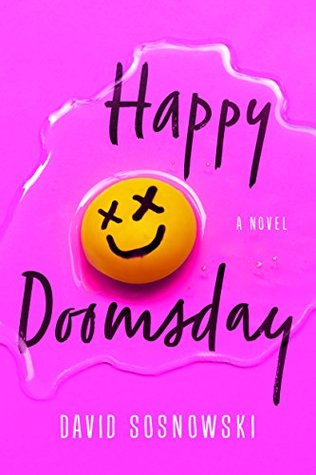More on this book
Community
Kindle Notes & Highlights
Max considered himself miles above anything below—as he called it—the Mason-Dumbass Line.
“We look like Laurel and Hardy,” Max said as they passed a mirrored wall at the Sheraton, “painted by Salvador Dali.”
Lucy, personally, had been deflected a size or two bigger than a girl her height and bone structure should be, assuming you were judging by the unreasonable standards of Hollywood, but also, maybe, by those from the American Medical Association.
Despite living in a state full of cowboys and cowboy wannabes, he was popular in school because he was good at something more important than skin color or what direction he chose to pray in. He was a good quarterback—a winning one, which was the best kind.
“That’s how compromise works,” she explained. “Both sides are angry.”
Allah, it seemed, could be tricky sometimes—almost sarcastic—meaning the opposite of what his words seemed to say on the page.
“We’re never as ideologically pure as when someone else is paying the bill.”
After all, what’s the point of living down south if you can’t get a gun out of a vending machine, practically?
transformation of death turned them into human-shaped things that were just shy of real, like that CGI Tom Hanks in The Polar Express that gave her nightmares for weeks.
because ownerless things gravitate that way: toward sorrow for all the absence they represent.
“I thought love was supposed to be like fireworks,” the boy said. “Nope,” his dream dad said. “It’s like a lump in your throat. But in your heart.”
Now that he was up to his goggles in viscera, Dev looked back at all the doomsday fiction he’d read, back when that had been his latest obsession. And the thing that struck him now was how they’d cheated. Whether nuclear or viral, through asteroid collision or climate change, those would-be apocalypses almost always left the world conveniently unpeopled. It was like there’d been some kind of rapture that made all the decomposable bodies disappear, leaving the last remaining protagonist to pursue his make-believe adventures safe from the mundane danger of tripping over corpses.
Dev wondered if that was the job of fiction, to test-drive the impossible, to loosen our grip on conventional reality.
Craigslist missed an opportunity, Lucy figured, not setting up a matchmaking service for right- and left-wing preppers to sell their stuff back and forth to each other with each swing of the political pendulum.
The atlases themselves were better than nothing but hardly the turn-by-turn convenience of Google Maps he’d gotten used to. Afterward, he wound up driving pretty much as randomly as before, just with fewer stops looking for atlases.
The stupidest thing people ever did—and they always did it in those stories—was leave where they knew what was what to go wandering, which invariably led to exciting plot complications easily avoided by staying put.
It was like Occam’s razor meets Murphy’s Law: faced with two equally likely outcomes, the universe was biased toward the most ironic one.
The bullets he loaded were decidedly overkill, the armor-piercing kind preferred in urban warfare and by suburbanites for whom the only answer to how much stopping power they needed was: more.
There needed to be a line, after all, and autocannibalism seemed a good place to draw it.
But all he could think to say was the truth—“Ran out of eggs”—which seemed too stupid for an epitaph, even to its author.
“So you want to make up a whole new religion just so a kid will stop asking questions,” Lucy said. Dev nodded. “That’s what religion was for, wasn’t it? That, and tax exemptions.”


